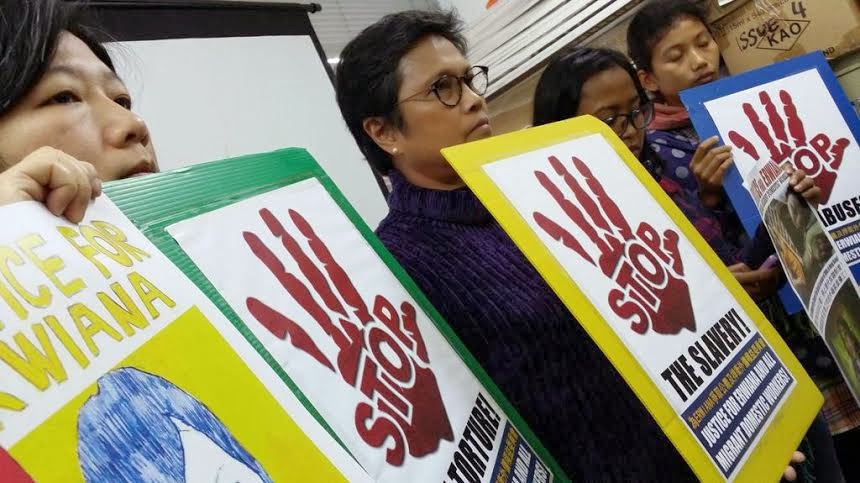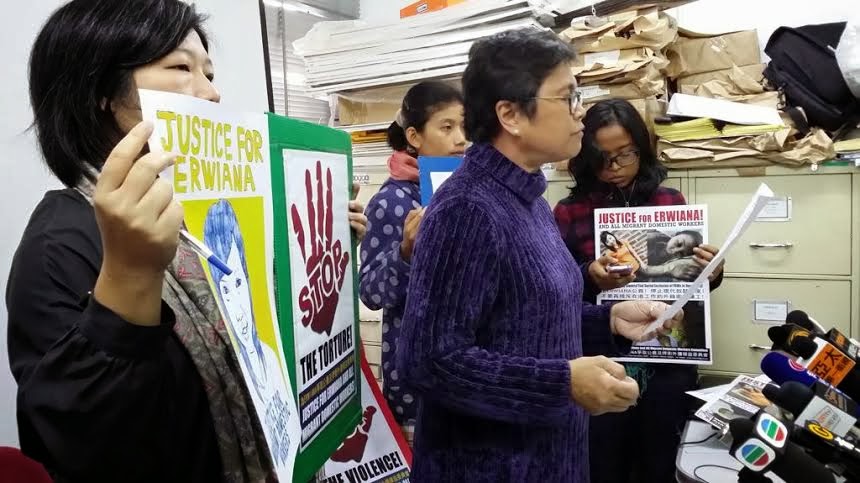
AS THE authorized representative to represent Erwiana Sulistyaningsih in her civil case, the Mission for Migrant Workers (MFMW) of St. John’s Cathedral visited her recently in Indonesia and witnessed the impact of the violence she suffered. No migrant worker should suffer the horrors that Erwiana experienced.
No one can deny the seriousness of Erwiana’s injuries and its effects on her physical, mental and future condition. Medical results revealed that Erwiana’s nose bone is broken and nasal parts diverted resulting to infection; there’s still blood clot in her brain; she needs to wear a binder due to a spine problem that causes difficulty to bend and do heavy lifting; and is undergoing psychological tests.
While we assist Erwiana and other migrant domestic workers who suffered similar inhumane treatment seek legal redress, we also push for the Hong Kong government to reform the policy of the mandatory live-in arrangement and other rules that put migrants at risk of abuse.
We have repeatedly stated, backed by a study that the mandatory live-in policy increases female migrant domestic workers’ vulnerability to various types of abuse, to be forced in a live-in arrangement to be on-call for 24 hours a day and to be forced to accept any sleeping and living arrangement the employer provides, also means being forced to surrender their privacy, their health, their security and their safety.
We urge the HK government to make the live-in arrangement non-compulsory and leave the choice to the mutual agreement of the employer and the FDW as provided also by international labour standards.
In addition, Erwiana is also a victim of such recruitment agency practices where migrant domestic workers are forced to stay in their employment, even if they are in a violent situation, until the huge placement fees, were fully paid. Such practice can create a life-long trauma in both the physical body and spirit of victims like Erwiana.
The HK government has also let the agency problem to persist. Even worse, in a recent hearing at the LegCo, the Labour Department seems to defend its inactions on agency overcharging by diverting the blame to policies of sending countries. While it is true that sending government’s policies have a lot to do with the problem, the HK government should not divest itself of its responsibility.
In 2013 alone, more than 65 % of the Mission’s cases of women migrant domestic workers involved illegal collection of excessive placement fees from employment agencies in Hong Kong (from HK$18,000 to 28,000) with no official receipts.
On the commemoration of the International Women’s Day this year, the Mission For Migrant Workers reaffirms its calls for reforms to improve the condition of FDWs in Hong Kong of whom 90% are women.
It’s about time that the Hong Kong government addresses these burning issues of women migrant workers.


